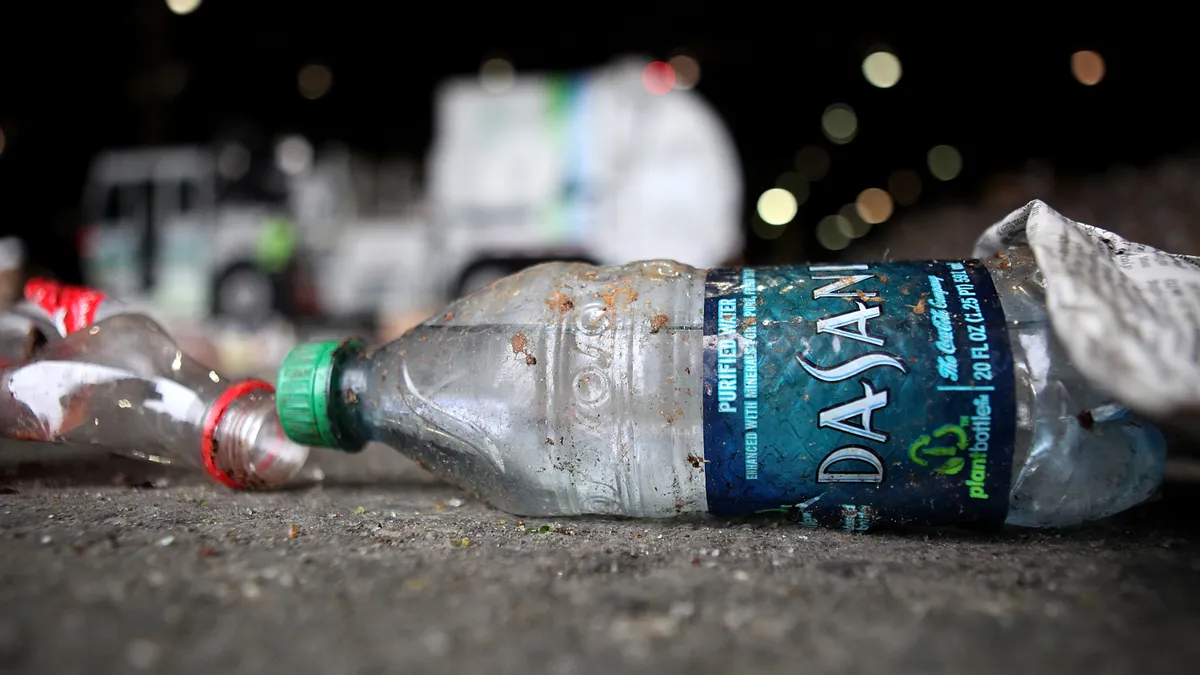Many aspects of the waste industry have changed, but old perceptions about criminal elements still persist for some members of the public — and can be reinforced by rare incidents involving fraudulent activity.
Luckily there's a way to combat these incidents, which may be more obvious than expected: background checks.
Establishing a thorough background check procedure for both employers and employees is seen as one way to ensure everyone is playing by the same rules. Like many aspects of the waste industry, the requirements for an employer to obtain a state or local permit can vary, though the basics of background or work eligibility checks for employees are governed nationally. In the most general sense all of these requirements are meant to ensure that companies know who they're hiring and can’t gain an unfair advantage by cutting any corners with wages, safety or disposal practices. The companies that do this often get more attention than the ones who are in full compliance.
"There’s always been operators like that in this business. There’s also really good operators," said Steve Changaris, northeast regional manager for the National Waste & Recycling Association (NWRA). "I think that the changes in the industry with the public companies and the private equity has brought additional new disciplines."
The scale of some companies in the industry allow for human resources departments that can apply more uniform standards when it comes to the hiring process. Though Melissa Sorenson, executive director of the National Association of Professional Background Screeners (NAPBS), said it is now common for companies across all industries to contract with third parties for these services.
"Having a partner who focuses solely on background checks versus members of your own team who tend to be experts in your own industry and field is often important," said Sorenson.
According to a recent NAPBS survey conducted by HR.com, 96% of respondents use some form of background screening during the hiring process. Preventing potential workplace violence was cited as the top reason, though the survey also found that improving hiring quality, protecting company reputation and complying with regulations were all key factors.
The basics of how the background check process should work are set out in the Fair Credit Reporting Act, which is regulated by the Federal Trade Commission. The Consumer Financial Protection Bureau has also taken action in the past regarding violations of this law. The Equal Employment Opportunity Commission can get involved to address any potential discrimination in the screening process. Additional local laws may also limit whether employers can ask about an applicant’s previous salary or criminal record.
Ensuring accuracy
Keeping track of all this can be complicated, especially when the added layer of a staffing agency comes into play. Sorenson said the key to making these relationships work is establishing clear responsibility for who will perform background checks in the contract between a company and an agency. If the agency is doing it, she recommended building in the option for an audit to confirm that checks are indeed happening and to help maintain the company’s reputation.
"Ultimately the individuals themselves are representing the brand not necessarily of the staffing agency, but of the entity whom they’re performing work for," she said.
The potential for issues with a staffing agency was highlighted by the recent sentencing of two former Waste Management employees related to convictions for identity theft and hiring undocumented workers in Texas. The company switched staffing agencies and reportedly implemented new controls after the initial incident occurred in 2012.
Close to 600,000 employers now use a system called E-Verify, a Department of Homeland Security program, as a way to check work eligibility. Applicants can check their own eligibility online for free at any time or employers can also do it within a set period of time after an offer has been made.
Currently this system is only required for federal contractors and vendors, but a number of states have also adopted their own laws applying it to government employees and some elected officials would like to see it expanded even further. This year legislation was introduced by Senator Chuck Grassley, S.179, that would eventually require all U.S. employers to begin using E-Verify.
Getting lawmakers involved
New regulation is also being discussed regarding the backgrounds of employers themselves. Different states take different approaches and the more stringent systems are mainly concentrated in one part of the country.
"The background checks issue is generally limited to certain Northeast locations, where organized crime used to be closely intertwined with some companies in the waste industry," wrote David Biderman, CEO of the Solid Waste Association of North America (SWANA), via email. "Different jurisdictions have different policy drivers that, potentially, lead to dissimilar background checks. [New York City] is still concerned about keeping organized crime out of the industry. In another location, regulators may be interested in other factors."
New York’s current system is regulated by the city’s Business Integrity Commission. Efforts to establish similar regulations for Connecticut in 2009 were opposed by the National Solid Waste Management Association and ultimately unsuccessful. New Jersey’s solid waste industry is regulated by the state’s Department of Environmental Protection and attorney general through a program called A901.
"The background checks issue is generally limited to certain Northeast locations, where organized crime used to be closely intertwined with some companies in the waste industry."

David Biderman
CEO, SWANA
Yet as highlighted over multiple years by New Jersey’s State Commission of Investigation (SCI), including in a recent report titled "Dirty Dirt," individuals with organized crime connections have still been allowed to operate in the state's recycling industry because it isn’t covered by that program. These “dirt brokers” have allegedly dumped thousands of tons of contaminated soil in various locations, which will cost the state and local municipalities significant amounts of money to remediate.
As described by the SCI, "...these flagrant and continuing abuses by unscrupulous self-proclaimed recyclers have tarnished and undercut the economic viability of legitimate elements of the industry."
Senator Ray Lesniak, who was originally involved in the creation of the A901 program, has introduced a bill that would expand the same background check requirements currently in place for solid waste to all aspects of the recycling industry including these “dirt brokers."
The bill has been stalled since it was originally introduced in 2016, but Lesniak said he plans to begin pushing for it again soon.
"This new report adds additional evidence to the fact that the organized crime influence is growing and that something needs to be done about it now," said Lesniak.
While so far Lesniak has not met with members of the local recycling industry he is open to hearing their feedback.
"One of the things we don’t want to do is cast a wide net if a less intrusive action requirements will do the job," he said.
The NWRA has not taken an official stance on the bill yet, but Changaris said local members are amenable to the regulation in the industry that is currently in place and ready to discuss the new proposal when called upon.
"I know there is wide acceptance of the A901 program by the hauling industry in New Jersey and no interest to call for major reforms or its elimination. The companies recognize the value that it has," he said.
***
As these requirements evolve compliance will continue to be key for employers in terms of how they conduct background checks on their employees and how they follow permitting requirements. In the same way employers want to know they can trust their employees, customers also want to know they can trust the employers. Finding the balance between transparency and ensuring regulations aren't overly burdensome to business will continue to be important as the industry works to shed the vestiges of old stereotypes.











